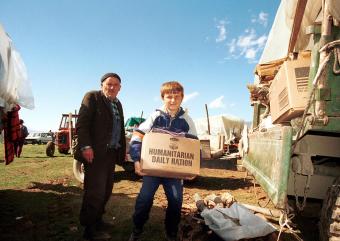Refugees & Resettlement
Recent Activity
MPI is pleased to host a discussion with experts from both KIND and the Women’s Refugee Commission, focusing on the causes of the increase in unaccompanied minor migrants, the situation these minors face once detained or apprehended, and the challenges confronting both nongovernmental organizations trying to provide aid and the U.S. government agencies responsible for processing minors through the system.
This discussion on the current global challenges of protecting refugees with Volker Türk, who directs UNHCR’s Division of International Protection, and Kathleen Newland, Director of the Refugee Protection Program was organized around three main themes: protection gaps, burden-sharing, and reducing statelessness.
The impact of climate change as a driver of human migration is expected by many to dwarf all others. Still, certain frequently repeated forecasts of the number of people who stand to be displaced by climate change are not informed by a complete understanding of migration dynamics, as this report explains.
This report explores the migration patterns and demographics of Black African immigrants in the United States, examining their admission channels, human-capital characteristics, and labor market performance. The authors also provide an analysis of these immigrants' integration prospects.
The U.S. refugee protection system, while generous in many respects, has become less robust over the last two decades. The unique and often diverse needs of emerging refugee populations have exposed severe limitations in the standard resettlement approach.This report examines U.S. legal and policy responses to those seeking protection and addresses the barriers, gaps, and opportunities that exist.
Please join us for this discussion on the situation of Colombian refugees in Panama and Ecuador; their living situations; legal status; their access to employment, health care, or education; and the treatment of groups of particular concern, like Afro-Colombian refugees, unaccompanied Colombian minors, and refugee women.
Public Policy Institute of California (PPIC) research fellows Magnus Lofstrom and Sarah Bohn, and UC Berkeley professor of public policy Steven Raphael are issuing a new report that examines whether LAWA achieved its primary aims: reducing the unauthorized population, deterring their employment opportunities and improving employment outcomes of competing authorized workers. Their analysis also investigates whether Arizona’s legislation induced a shift away from formal employment.








